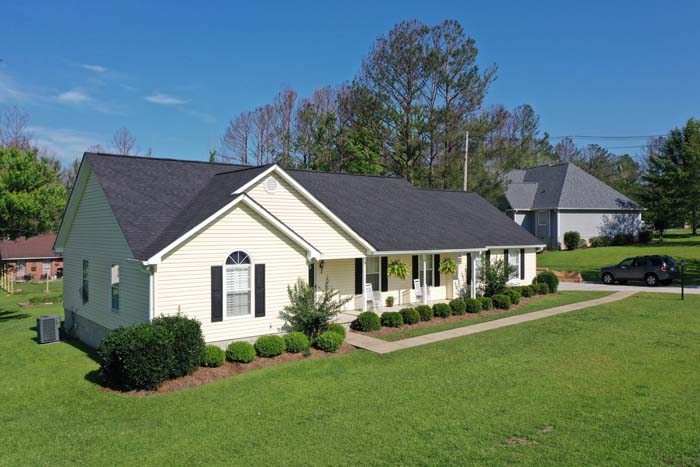Top Questions to Ask Before Hiring a Siding Contractor
Revamping your home’s exterior with new siding is a significant investment that enhances not only aesthetic appeal but also functionality and value. To ensure this transformation is successful, selecting the right siding contractor is crucial. With the right selection, your home will be better protected against harsh weather, insulated for energy efficiency, and increase in curb appeal and property value.
Before you embark on this journey, here’s a comprehensive guide of essential questions to ask potential contractors, each designed to help you make an informed decision.
1. Are You Licensed and Insured?
Engaging a licensed and insured siding contractor is non-negotiable. Licenses are a sign that the contractor complies with state and local regulations, ensuring they are qualified to perform the work. Insurance safeguards you against accidents or damages during the project. It’s advisable to request proof of both. According to the National Association of the Remodeling Industry (NARI), verifying these documents can reduce unnecessary risks significantly.
2. What Is Your Experience With Siding Installation?
When assessing a contractor’s experience, it’s valuable to understand both their length of time in the industry and their specific expertise with siding projects. Experienced contractors can provide insights and recommendations based on past projects, showcasing their ability to manage challenges efficiently. Request to see a portfolio or visit existing projects to see their work quality firsthand.
Example:
If a contractor has over 15 years of experience installing vinyl siding, they likely know how to avoid common pitfalls and ensure the material’s longevity and performance. This expertise can be the difference between a smooth installation and problematic long-term upkeep.
3. Can You Provide References?
Speaking with past clients offers a window into the contractor’s reliability, workmanship, and customer service. When provided references, ensure to ask critical questions about their satisfaction level, the contractor’s adherence to timelines, and any resolving issues post-installation.
Authenticity is key here. Verify references by checking online reviews and ensuring the contact numbers provided are valid. It can also help to look for red flags in review patterns or repeated complaints in forums like Better Business Bureau.
4. What Siding Options Do You Offer?
The variety of siding materials can be overwhelming, each with unique benefits. Common materials include vinyl, known for its durability and low maintenance, and fiber cement, renowned for its resilience to fire and weather extremes. Wooden siding offers classic beauty, while aluminum provides a sleek, modern look. Asking your contractor to elaborate on these options ensures you choose a material that aligns with your climate, aesthetic preferences, and budget.
Example:
Consider vinyl siding: for someone living in a heavily rainy area, vinyl offers substantial water resistance and won’t warp easily compared to wood. This choice extends the life of your siding and keeps maintenance costs down.
5. What Is the Project Timeline?
Understanding the duration of your siding project is crucial for planning. An experienced contractor should provide a comprehensive timeline detailing each phase—removal of existing siding, installation, and final inspections. Be clear about potential causes of delay, such as weather dependencies.
6. How Do You Handle Unexpected Issues?
No project proceeds without hiccups; thus, discuss how the contractor handles unforeseen challenges. This conversation will reveal their problem-solving approach and flexibility. Some contractors will include potential interruptions in their contracts, which helps manage expectations and minimize surprise costs.
7. Do You Offer a Warranty?
Warranties can indicate quality assurance from both contractors and manufacturers. Analyze the warranty’s terms to determine its coverage of materials, labor, and duration. Longer, comprehensive warranties typically suggest confidence in the product and installation quality.
8. What Are the Project Costs?
Obtain a detailed cost estimate, breaking down each aspect of the project, from material to labor. Ensure transparency in pricing to avoid hidden fees. It’s beneficial to compare quotes from several contractors to ensure competitive pricing.
Research by the Remodeling Magazine underscores the advantage of collecting 3-5 estimates before finalizing a contractor, potentially saving thousands of dollars without compromising quality.
9. How Do You Ensure Quality Control?
Audit the contractor’s quality control methods to understand their commitment to high standards. A seasoned contractor will outline their processes for regular site inspections and customer feedback mechanisms in place to address concerns swiftly.
10. What Are the Future Implications of the Chosen Siding?
Discussing future implications includes the energy efficiency potential of different siding types. Many modern materials, like insulated vinyl or fiber cement, can significantly reduce heating and cooling costs, attributing to the building’s sustainability.
Forecast:
Given the surge in sustainable building practices, opting for energy-efficient siding can align your home with future environmental and economic benefits. This trend is reflected in increasing regulations and consumer demand for eco-friendly homes, potentially elevating property values over time.
11. How Does Material Choice Affect Environmental Impact?
Considering sustainability, investigate how the siding material impacts the environment. Materials like fiber cement or recycled metal have a lower carbon footprint compared to some traditional materials, aligning with green building certifications. Future homeowners are increasingly interested in sustainable improvements, which can be a strong selling point.
Conclusion
Undertaking a siding project is a significant commitment. By vetting potential contractors with these comprehensive questions, you not only protect your investment but also ensure a successful overhaul of your home’s exterior. Achieving a balance between aesthetic value, material durability, sustainability, and cost-efficiency will ultimately transform your residence, adding value and comfort for years to come.

